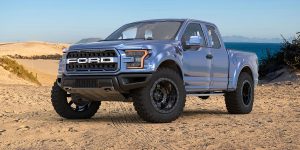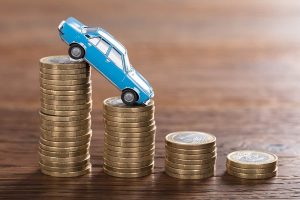Every motor vehicle owner encounters a host of identifying numbers, from the Vehicle Identification Number (VIN) to the license plate number. Yet, one of the most important numbers is often overlooked, the vehicle registration number. This unique number, assigned by your local Department of Motor Vehicles (DMV) or equivalent agency, serves as a critical link between you, your vehicle, and official records.
A vehicle registration number is a unique code linked to your vehicle for identification purposes. This number can be found on your vehicle registration card, on the vehicle’s windshield or door jamb, and on official documentation like insurance policies.
In this guide, we will go over the intricacies of vehicle registration numbers, explain their importance, and guide you on how to find or retrieve them.
Introduction to Vehicle Registration Number
Every car owner should be familiar with various key identifiers associated with their vehicle, including the Vehicle Identification Number (VIN), license plate number, and notably, the vehicle registration number.
While this may seem overwhelming, understanding these elements is crucial to vehicle ownership and management. The vehicle registration number, in particular, plays an essential role in linking your vehicle to you and the official records maintained by the government.
What Is a Vehicle Registration Number?

A vehicle registration number, sometimes referred to as a tag or license number, is a unique code assigned to your vehicle upon registration. It is an alphanumeric identifier that varies from country to country.
The registration number is distinct for each vehicle and plays a vital role in maintaining a clear record of vehicle ownership, tracking vehicle history, aiding law enforcement, and managing vehicle-related transactions such as sales and insurance.
Purpose of a Vehicle Registration Number
The primary purpose of a vehicle registration number is identification. It assists government authorities in maintaining a detailed and organized record of every registered vehicle within their jurisdiction. With the vehicle registration number, authorities can quickly access vital information such as the vehicle’s make, model, color, year of manufacturing, and importantly, its owner’s details.
Moreover, vehicle registration numbers are indispensable during vehicle sales, transfers, or insurance procedures. When you sell your vehicle, the registration number allows the buyer to check the vehicle’s history, including previous ownership, accident history, and other crucial details. Insurance companies, too, use these numbers to track your vehicle’s insurance status and history.
A vehicle registration number also serves to ensure that vehicles on the road comply with essential standards such as emissions regulations and safety requirements. Authorities can easily monitor whether a vehicle has passed mandatory inspections or if it is roadworthy via this unique identifier.
Locating Your Vehicle Registration Number
The next crucial step for every vehicle owner is to know where to locate this number. Depending on your jurisdiction, the vehicle registration number can be found in several places.
Where to Find Your Vehicle Registration Number on Your Vehicle
The most visible place to find your vehicle registration number is on the license plates of your vehicle. In most regions, this number is embossed or printed on the metal or plastic license plates mounted on the front and/or back of the vehicle.
Sometimes, the registration number may also be displayed on a sticker or decal attached to the vehicle’s windshield or side windows. These stickers often indicate the expiration date of the vehicle’s registration, which must be renewed periodically.
However, the registration number on the license plate and stickers might not always match the official vehicle registration number if the plates are personalized or if the vehicle is registered in another jurisdiction.
Finding Your Vehicle Registration Number on Documents
The official documentation is another reliable source to locate your vehicle registration number. The number is typically included in several important documents related to your vehicle. The primary document is your vehicle registration card or document (V5C in the UK, Certificate of Registration in the US), which is issued by the local vehicle registration authority such as the Department of Motor Vehicles (DMV) in the United States or the Driver and Vehicle Licensing Agency (DVLA) in the UK.
Your vehicle registration number can also be found on your vehicle insurance documents and policy, as insurance companies use this number to track the vehicle’s insurance history.
How to Retrieve a Lost Vehicle Registration Number
In the unfortunate event that you lose or forget your vehicle registration number, there are several ways to retrieve it. If you have lost your vehicle registration card, the quickest and easiest way to retrieve your registration number is to refer to your insurance policy documents or any other official documents that include the vehicle’s details.
If you cannot access these documents, you can contact your local vehicle registration authority, such as the DMV in the United States or the DVLA in the UK, for assistance. You will need to provide personal identification and proof of ownership to access this information.
If your license plates are stolen, you should report the theft to the police and your local vehicle registration authority immediately. They will guide you through the process of acquiring new license plates and, if necessary, a new vehicle registration number.
Vehicle Registration Process

Owning a vehicle requires understanding the registration process and the integral role of the vehicle registration number in it. This section will provide an overview of the vehicle registration process and explain how the registration number is assigned and used.
The Process of Vehicle Registration
Vehicle registration is a compulsory process required by law in almost all jurisdictions. This process includes several key steps:
- Purchase of Vehicle: Upon purchasing a new or used vehicle, the dealer or previous owner should provide you with necessary documents like a bill of sale and a release of liability form, which verifies that the vehicle has been sold to you.
- Application for Registration: After acquiring the vehicle, you need to apply for vehicle registration at your local vehicle registration authority. The application usually requires documents, including proof of vehicle ownership, proof of your identity, and evidence of valid insurance.
- Vehicle Inspection: Depending on the jurisdiction, your vehicle might need to undergo a safety and/or emissions inspection before registration. This inspection ensures that your vehicle is roadworthy and complies with environmental standards.
- Payment of Fees: There are fees associated with vehicle registration that must be paid. These costs often include a registration fee, taxes, and possibly other charges depending on your location and the type of vehicle.
- Receipt of Documents and License Plates: After the registration process is completed, you will receive a registration card with your unique vehicle registration number and in most cases, license plates displaying this number.
How Your Vehicle Registration Number is Assigned
The method of assigning vehicle registration numbers varies from one jurisdiction to another. Some use a purely sequential system, while others incorporate codes representing the vehicle’s place or year of registration. Regardless of the system, each vehicle’s number is uniquely assigned upon registration.
The vehicle registration number becomes the official identifier of the vehicle in the records of the vehicle registration authority. It links the vehicle to the owner and serves as a reference in all related matters, from traffic violations to insurance claims.
FAQs
1. Can I customize my vehicle registration number?
Yes, many jurisdictions allow vehicle owners to customize their vehicle registration numbers, often referred to as having “vanity” or “personalized” plates. However, the availability, process, and cost of acquiring personalized plates vary widely. Some restrictions, such as prohibitions on offensive language or certain number-letter combinations, typically apply. You should check with your local vehicle registration authority regarding this matter.
2. What should I do if my vehicle registration number is stolen?
Suppose you believe that your vehicle registration number, typically displayed on your license plates, has been stolen. In that case, you should immediately report the theft to the police and your local vehicle registration authority. This will help protect you from potential liability if the stolen plates are used illegally. After reporting the theft, you will likely need to apply for new license plates and possibly a new registration number, depending on your jurisdiction’s regulations.
3. Is there a way to find the owner of a vehicle using the registration number?
For privacy and security reasons, most jurisdictions have laws and regulations that restrict access to personal information linked to vehicle registration numbers. Generally, the public cannot access the owner’s information using the vehicle registration number.
However, law enforcement agencies can use the vehicle registration number to identify the vehicle owner in certain situations, such as after a hit-and-run accident or when a vehicle is suspected of being involved in illegal activities. If you need to identify a vehicle owner for a legitimate reason, report your situation to law enforcement and let them handle the investigation.
4. Can I change my vehicle registration number?
Yes, you can often change your vehicle registration number by acquiring a personalized or vanity plate. The process varies depending on your jurisdiction and usually involves filling out an application and paying a fee. However, your old registration number remains in the system, linked to your vehicle’s history.






